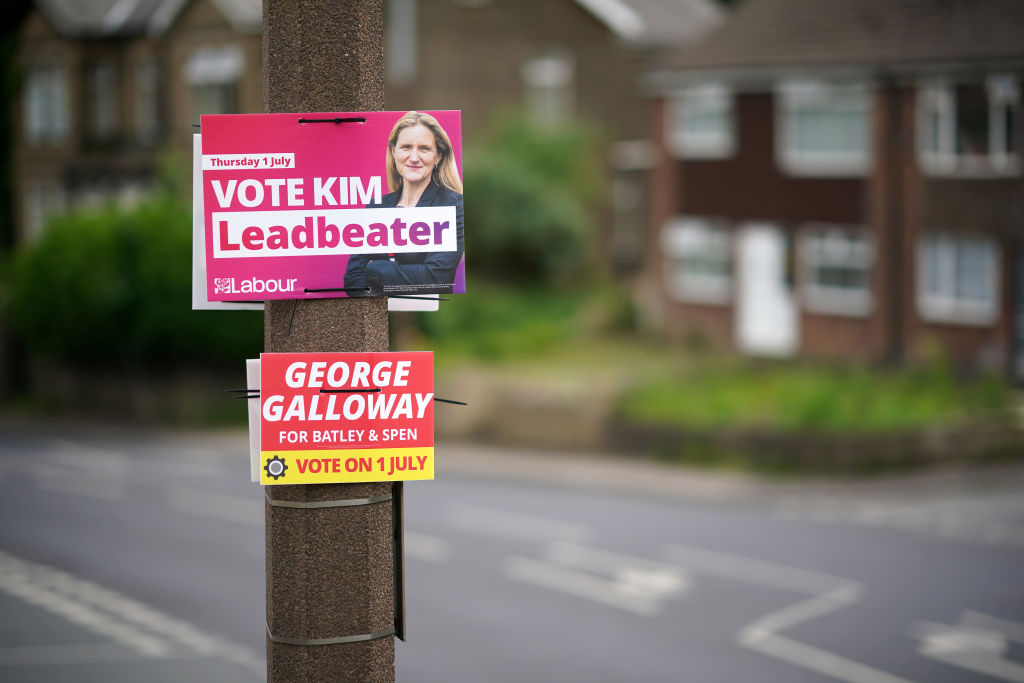While Labour’s narrow victory in Batley and Spen will mostly be analysed through the prism of Sir Keir Starmer’s leadership, a more compelling fault line is the apparent estrangement of some Muslim voters from a party that has until now been able to rely on their support. Labour may have held on but it also showed its hand. During the campaign, Labour’s candidate Kim Leadbeater posed for a photograph with local campaigners sporting T-shirts that depicted Israel as ‘Palestine’, issued both a leaflet and a letter touting her pro-Palestinian credentials (by heaping scorn on Israel, naturally), and defended a grim leaflet clearly geared towards tapping into anti-Hindu and anti-Indian prejudices. In the middle of the campaign, Sir Keir also used one PMQs to demand Boris Johnson convince other world leaders at the G7 to recognise a Palestinian state, presumably prior to any peace agreement with Israel.
If Labour detects a rift with some Muslim voters, there are ways to address it that don’t involve stoking anti-Israel and anti-India sentiment
The Labour view of British Muslims that comes across in these antics is fairly objectionable. In deploying the same sectarian, communalist politics that have previously been used against Labour in similar seats, the party won the by-election but lost the moral high ground. Now, the moral high ground doesn’t matter all that much in real politics but in Labour politics – that melange of virtue and sentiment – it is supposed to mean something. Indeed, Labour’s Narendra Modi leaflet recalled a similar flyer issued by Zac Goldsmith’s mayoral campaign. Supporters of Sadiq Khan repeatedly accused the Tories of using dogwhistles in that election. Batley and Spen 2021 was an advance on London 2016.
I argued a couple of weeks back that there could be no good outcome for Labour. If it won, it would learn the lesson that communalism works; if it lost, that it wasn’t communalist enough. The party’s new dilemma is that, having won with this sort of campaign, it will need to deliver in some way or risk losing voters impressed by these tactics at the next election. However, doing so will only propagate this brand of politics further. More Labour candidates will push these buttons and more voters will expect them to be pushed.
Sectarianism isn’t all that novel in British politics – see, for example, the west of Scotland for much of the 20th century – but multiculturalism has introduced so many communities that sectarian electioneering today could not be contained to bits and bobs of Glasgow, Lanarkshire and Liverpool. If you’re seen to play one ethnic, religious or cultural group off against another, you chuck a grenade into a minefield. Britain can either be a liberal, pluralist country or it can be one in which demographic demagoguery becomes mainstream, but it cannot be both.
If Labour detects a rift with some Muslim voters, there are ways to address it that don’t involve stoking anti-Israel and anti-India sentiment, with the ripple effect such rhetoric can produce, or addressing British Muslims as a bloc organised around resentments born halfway around the world. That Labour chose otherwise in Batley and Spen betrays how the party thinks about Muslims and it’s not pleasant. Labour is lost in so many ways but this one is more fundamental – and more troubling – than most.







Comments